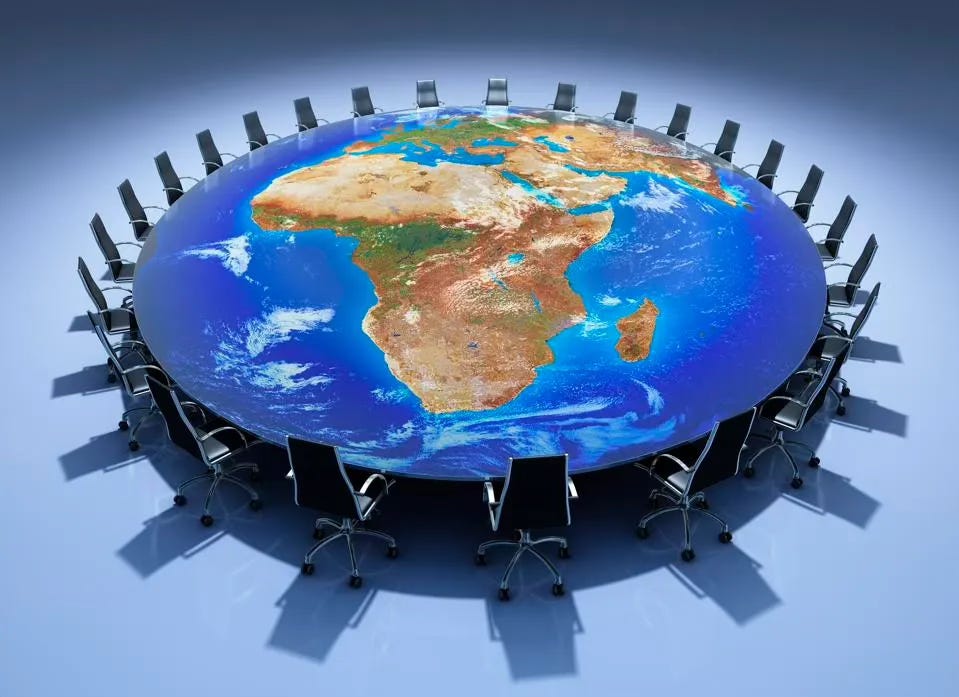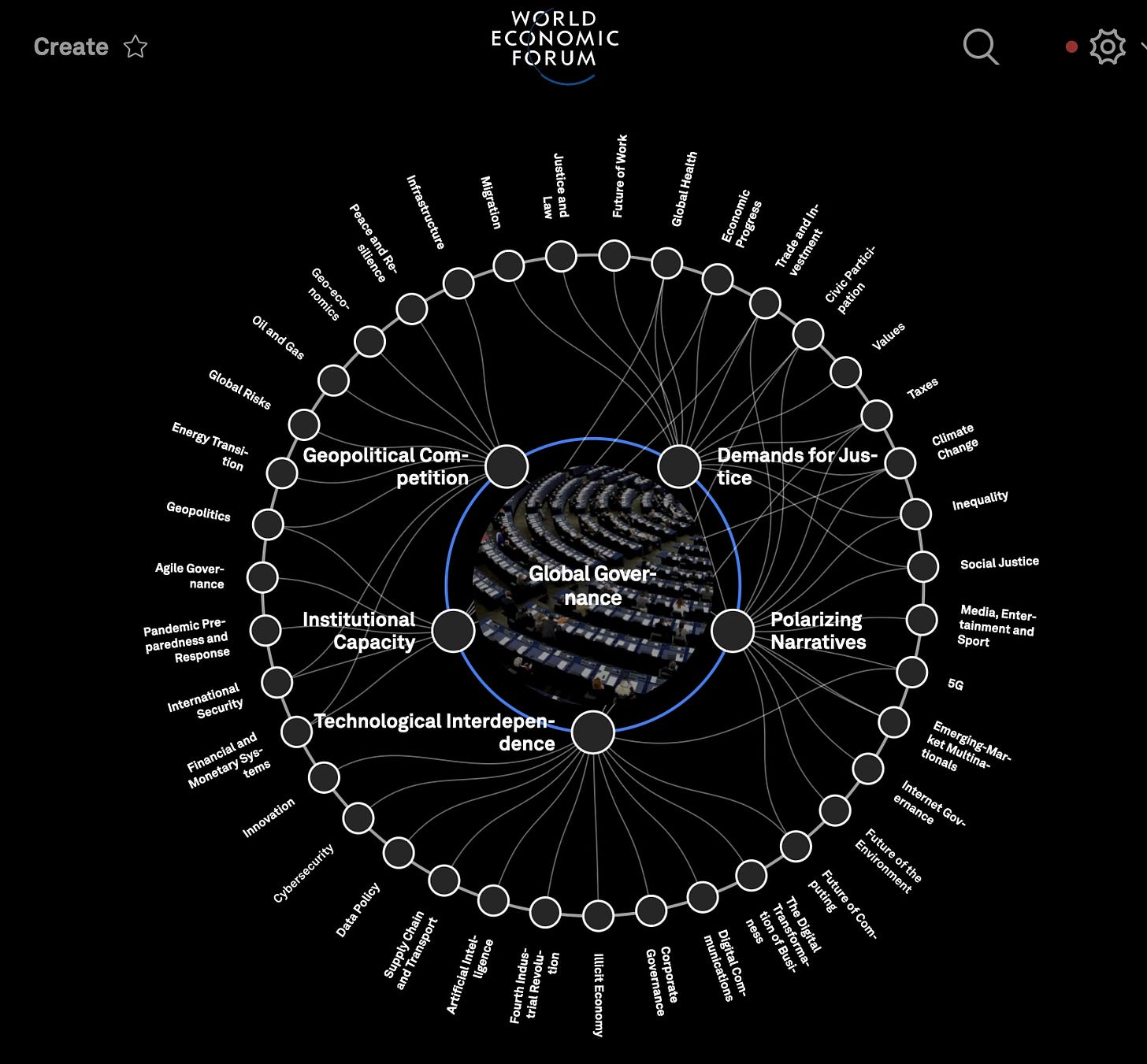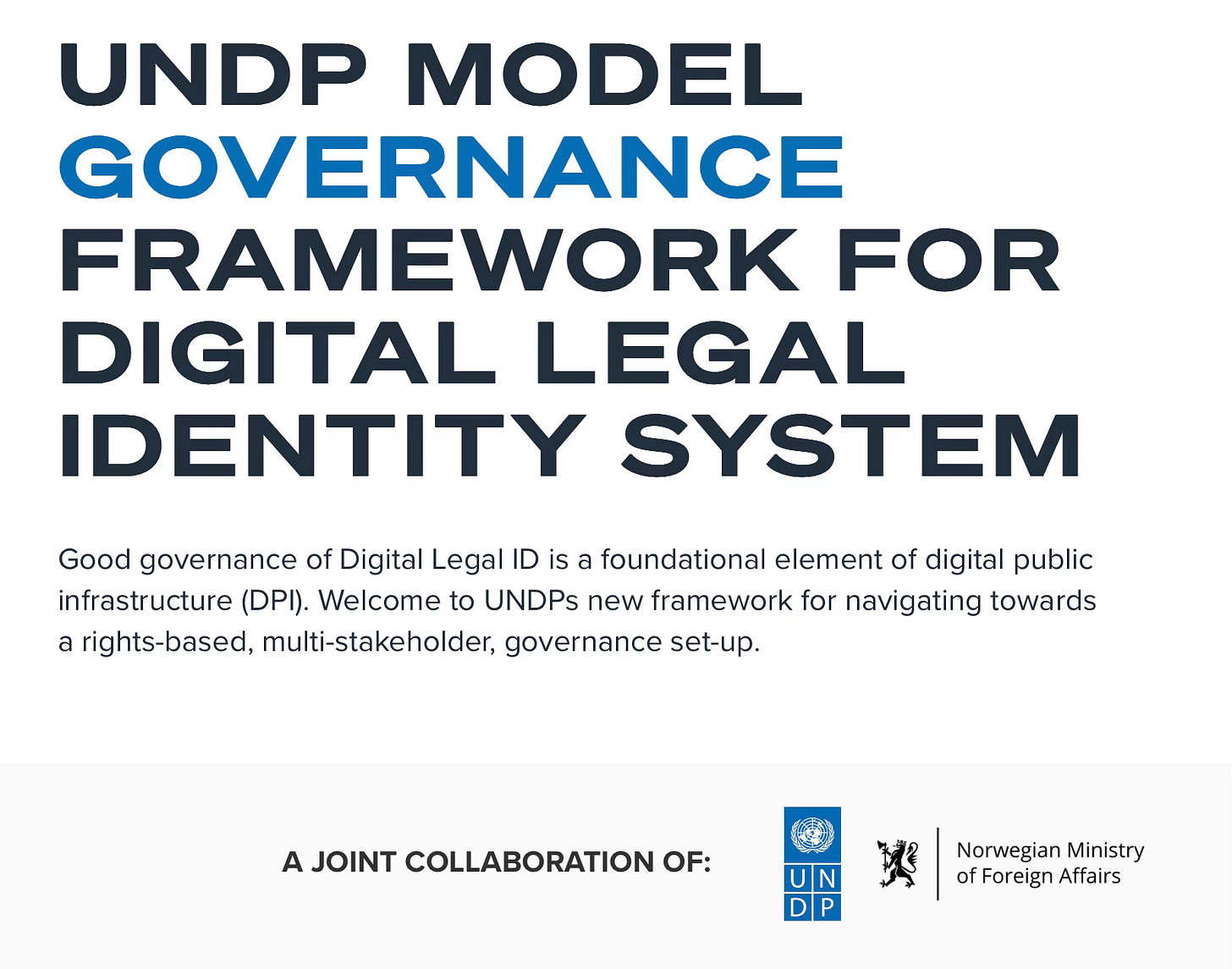Global Governance
Just hearing those words makes your heart feel all warm and fuzzy...
According to the Global Challenges Foundation, “global governance is the system of decision-making and cooperation among international actors, including states, intergovernmental organizations, non-governmental organizations, and civil society.”
During the WEF in Davos, the United Nations Secretary-General said: “But now, some analysts predict we are moving into a totally chaotic situation, in which geopolitical divides at all levels prevent any global response to global threats. But I strongly believe it is possible to prevent this disastrous scenario. I am confident we can build a new, multipolar global order with new opportunities for leadership and with balance and justice in international relations. But multipolarity creates complexity. Left to itself, it could deepen fault lines: Between North and South; East and West; developed and developing economies; within the Group of 20 (G20); and between the G20 and everyone else. The only way to manage this complexity and avoid a slide into chaos is through a reformed, inclusive, networked multilateralism. Now, this requires strong multilateral institutions and frameworks and effective mechanisms of global governance. Without them, further fragmentation is inevitable, and the consequences are clear.”
According to WEF, “global governance functions through a set of institutions, rules, and processes that aim to manage cross-border issues - like diplomatic relations, trade, financial transactions, migration, and climate change. It seeks to address collective concerns, and mediate common interests, creating both privileges and obligations for the public and private sectors. It is also essential for solving shared problems: pandemics, wars, and financial crises. It is not, however, just a set of treaties and organizations; it is comprised of a vast network of collaborative processes, relationships, guidelines, and monitoring mechanisms, which are all necessary to manage our increasingly complex interdependence.”
One of their initiative with the United Nations Development Programme is the good governance of Digital Legal ID. One of the Sustainable Development Goals and Agenda 2030 goals is to provide legal identity and birth registration for all, underscoring the importance of comprehensive civil registration. The Digital Legal ID governance framework establishes a standard law and policy model that facilitates the digital ID shift while prioritizing individual rights. It also builds on lessons learned from the UN System’s identity management ecosystem that is based on civil registration. The framework comprises nine components: legal and regulatory frameworks, non-discrimination, access to information, legal accountability, capable institutions, user value, procurement and anti-corruption, and data protection.
The idea of "global governance" has been insidiously introduced into our society. An example of this is the formation of the European Union in 1993. I remember how excited everyone was to be a part of it. Their motto, “United in diversity, “ is a lie because they do not celebrate the nationalism of the country member states. They are trying to erase it with the Euro, EU values and goals, no borders, etc. By accepting their values, we have allowed bureaucrats to dictate to individual nations what the world should be like while erasing the people's national identity.
One must wonder why there is a big push toward global governance and how they are trying to accomplish that. Global governance would allow a coordinated, controlled approach to solving shared problems: pandemics, wars, and financial crises. The question that needs to be answered is who would lead the charge. The United Nations? How would they accomplish it? We don’t have to look that far. Just follow the work of the World Health Organization with the Pandemic Agreement and the Amendments to IHR. By controlling the world's health through potential Public Health Emergency of International Concern or another pandemic, WHO could lay the groundwork for the imaginary need for global governance. Do not forget that the WHO is the health arm of the United Nations, and the United Nations is a big driver behind global governance because these unelected elitists “need” more power.
They want “global governance.” They want control. They want One World dictated by the elites and bureaucrats, with the loss of national identity, pride, and eventually individualism. They do not like the power of one person, one nation, and one people because they realize that our strength is in knowing who we are. That will be their downfall. The arrogance to think they know what we want.
|




About that power of 1. It is such a vast subject. How many molecules in a leaf? In the whole watershed? Unfathomably many. I can hear their arguement, but 1 is important? WEF: Ha!! they say.
They say We Control so Many, 1 is Obliterated. 1 is Meaningless! A digit not worth counting at this scale! Arrogance = foolishness, to not see past the equations, the algorhythms, to where any and all worth comes, acculumates from, uncountable and unaccountable contributions and connections.
They really seem to have a deathwish.
best from Oregon
So....my understanding is....the UN was created to do exactly everything stated by the vacuous Secretary-general. And yet, apparently we need more such institutions.....can you imagine the likes of such a feckless, verbally meaningless character determining the future of mankind? My pessimism for the future of humanity is simply, yet again, increasingly, assured. The arrogance of those in power will destroy us all!